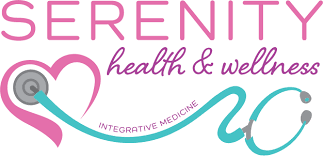Two medium-sized eggs weighing 44 grams each provide you energy intake of 126 kilocalories. When the person consumes more than they waste, it is called calorie surplus, and the body stores the excess energy as fat. That is how a healthy person gains weight. Vice versa, when the calorie content of food is less than the person spends, the body grows thin. This is why people who want to maintain or change their weight get very interested in the calorific value of their food.
Eggs are also number one in almost every diet. In this article, we will sort out everything we know about their nutritional property and find out if eggs are so wonderful and if one is guaranteed to lose weight if eating them.
How many calories are in an egg
The calorie content of the egg depends on its size. FoodData Cental discerns five types of egg size:
- Small (38 g) – 54.3 kcal
- Medium (44 g) – roughly 63 kcal
- Large (50 g) – 71.5 kcal
- Extra large (56 g) – about 80 kcal
- Jumbo (63 g) – about 90 kcal
The way you cook your eggs also impacts their nutritional value. Calories from 2 eggs boiled and 2 poached eggs are the same: 159 kcal if the eggs are large. A simple, no add-ons, omelette from 2 eggs is 192 calories. The same two eggs contain 230 calories when fried.
And if you add anything, like oil, bacon, greens, etc., the calorie count per serving also changes. Eggs Benedict, made of two poached eggs with ham or bacon, an English muffin, and Hollandaise sauce, ranges between 730 and 900 calories: a striking gap.
Different parts of the egg also differ in energy profit. 2 egg white calories are about 36 calories (from the 34-g eggs), while the yolks of the same eggs hits the value of 112 kcal. It does not mean that you should eat only egg white: keep the egg in your meal whole if you want all the nutrients.
Nutritional Facts
Let us break down 2 eggs’ nutrition information by elements and their amount. For this list, we considered two medium-sized eggs.
- Protein: 11 g.
- Carbohydrates: 0.6 g.
- Fat: about 8.4 g.
- Selenium: 27 mg.
- Calcium: about 50 mg.
- Potassium: 121.4 mg.
- Vitamin D (D2 + D3): 72 IU.
- Folate: 41.4 mg.
- Vitamin A: 476 IU.
2 Eggs Alternatives
If you suffer from egg allergy or simply dislike the taste, you can compensate for the egg’s nutritional value by including other products in your diet plan, such as:
- Tofu
- Greek yougurt
- Chicken
- Protein shakes and powders
- Cheese
- Tuna
- Nut butter
- Mashed banana
Eggs Benefits
Many diets, from medical to keto and Mediterranean, include eggs, due to their great nutritional balance, health benefits, and dietary value.
Nutrients
Besides the nutrients we mentioned, eggs also contain group B vitamins, necessary for healthy CNS and mental health, and various other minerals, including zinc, copper, magnesium, iron, etc. This makes them a good addition to your meal as the one product contributes to many needs of your body.
Weight Loss
We counted two eggs calories earlier, and if you do not mix them with greasy foods, such as meats or sauces, the number is quite reasonable and can easily help you to remain within your calorie limits.
Heart
Vitamins B, selenium, and potassium, contained in eggs, are beneficial for the heart. There is a Greek study claiming that eating eggs regularly can be connected to a 60% lower risk of a person developing heart disease.
Eyes
The vitamin A in eggs is paired up with carotenoids, lutein, zeaxanthin, and zinc – nutrients that contribute to a healthier vision and lessen age-related degeneration and may prevent cataracts.
Brain
One medium egg contains 129 mg of choline which serves as a neurotransmitter and is linked to reducing brain inflammation and improving its functions. The B group vitamins found in eggs also contribute to the healthy central nervous system.
Possible Risks
However, you should not eat too many eggs. They are naturally rich in cholesterol and have some saturated fats, which is why heavy consumption can lead to a higher risk of:
- Raised blood cholesterol
- Elevated blood pressure
- Diabetes
- Digestive disorders
As it is with everything, a sense of measure is key to enjoying the benefits and avoiding the risks.
Top Recipes
Let us talk about the taste and look up the most popular and delicious recipes for cooking eggs.
Omelettes
An omelette is a classic breakfast dish made with eggs that are beaten, seasoned, and cooked in a pan with various fillings such as cheese, vegetables, and meats.
Quiches
Quiche is a type of French tart. It consists of a pastry crust filled with egg custard, often complemented with cheese, meats, seafood, vegetables, and spices.
Frittatas
Frittata is an Italian dish with the name originating from the word “fried”. It somewhat resembles an omelette. The classic technique of cooking a frittata involves mixing whisked eggs with herbs, spices, and sometimes cheese, with potatoes cut into pieces. Then the cook bakes or fries it.
Summary
Eggs can be a great and healthy addition to your meal: they provide a good and diverse balance of micro- and macronutrients while having moderate calorific value. There are many good recipes that include eggs and help you to eat interestingly diversified food.
FAQ
How many calories do 2 eggs have?
2 eggs’ energy value can be different and depends on the size and the way you cook them.
How much protein is in 2 full eggs?
2 whole 44-g eggs contain roughly 11 g.
Are eggs good for weight loss?
Eggs can help you shed weight unless you serve them with a lot of additional high-calorie products.
How many calories and carbs are in 2 large eggs?
2 large eggs weigh around 100 g. This amount has less than 1 gram of carbs and about 143 kcal.




